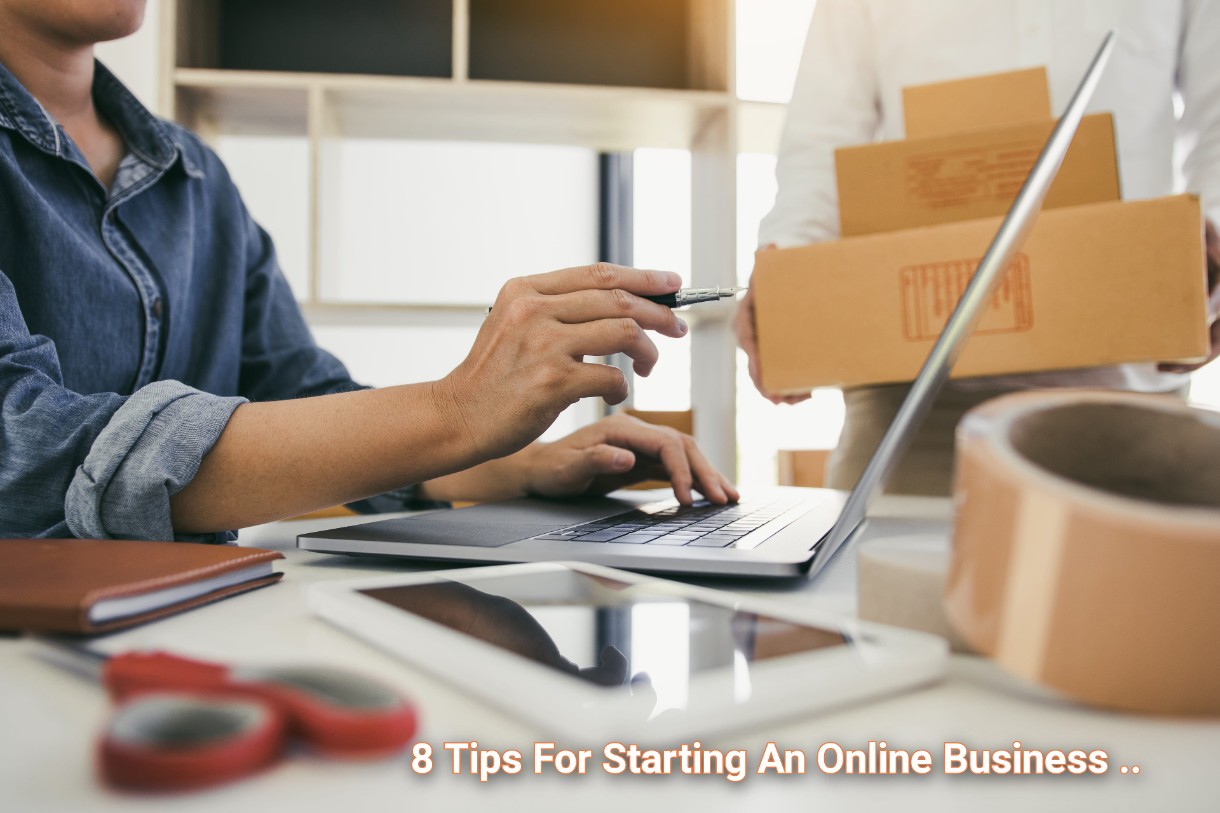How to start an online business: An Ultimate Guide
The internet has revolutionized commerce. Anyone with a laptop, internet access, and ideas can start an online business. A website and business registration are not enough, however. You need to know what you will sell, your target audience, and your strategy to attract new customers. To increase your chances of establishing a successful Internet business, you must carefully plan and be strategic.
Starting an online business and creating compelling content to attract visitors includes verifying your business idea before investing a dollar. Your plan can help you reach a large audience and create revenue. And for that, here’s a guide to do so:
1. Choose A Business Idea
This first step may seem simple. But you’d be shocked how many aspiring entrepreneurs rush into branding or site development without a solid plan. You might want to avoid doing that not to waste resources. So, here are some tips to help you choose your new online business.
Focus On Your Skillset and Experience.
Use what you know or are willing to learn quickly. Remember that the ability to learn is always a plus. You don’t have to be an expert straight away, but leveraging your talents and experience can help you be successful in your chosen business. For instance, if you love cooking, pursue an online food business or perhaps you can consider selling real estate because there are tons of benefits to becoming a property agent.
Since it’s about running an online business, learning marketing should be on your list of priorities. Consider using content marketing, social media, search engine optimization (SEO), and digital interaction to attract new clients. You can learn these by taking online marketing education.
Moreover, ask yourself if you love running this business. It might be hard to persevere without that motivation.
Why Do You Do It?
It’s a simple question, but the answer may define your business’s future. Every good company has a mission and a purpose. And you must pursue the startup with the intention of sustaining it. Yes, you can plan your exit, but without the passion and desire to grow your brand, you may not get far.
2. Examine The Market
Before spending time and money on your concept, make sure it can succeed (learn more about POC meaning). Use the following market research tools to fine-tune your proposal and assess its survivability:
-
- Research Your Competitors. You can make a list of their customers and products. It might assist you in identifying your target audience and how to stand out from the competition.For this, you should take the help of various tools such as SEMRush, BuzzSumo, etc. using a good internet to run real-time analysis. For the latter, we recommend going for Xfinity because of its high-speed internet. Connect with Xfinity customer service to get a plan right away.
- Understand Your Target Audience. Request Feedback on Your Idea. Consult with your target audience to see if they like your idea and, if so, how you can improve it. You can also ask friends who can be completely honest or organize focus groups or internet questionnaires. Or, view the website to find professionals to help you with market research. This step is essential in creating an investment pitch deck to secure funding.
- Request Feedback on Your Idea. Request Feedback on Your Idea. Consult with your target audience to see if they like your idea and, if so, how you can improve it. You can also ask friends who can be completely honest or organize focus groups or internet questionnaires. Or view website to find professionals to help you with market research.
3. Choose A Business Model
After deciding on a product or service to sell, you must develop a business model. Remember that no one business structure fits all. So, examine everything and then choose a company model. If you want to take your business seriously and secure it, you might consider forming a corporation.
Dropshipping, for example, allows you to earn money without having to manage inventory or invest much. It’s a clever, cost-effective alternative for beginning an Internet e-commerce business. If you want a warehouse to store merchandise, you will need to invest more upfront in a wholesale or warehousing business model. To learn more about drop shipping and its workings, check out this comprehensive article by Printful. It covers everything you need to know, from start to finish.
- For example, suppose you create t-shirt designs and sell custom merchandise, and you want a warehouse to store the inventory. In that case, you will need to invest more upfront in a wholesale or warehousing business model. By contrast, a dropshipping business lets you fulfill orders without holding inventory, reducing upfront costs and risk.
If you want to sell a product that only you can provide, you can do so under your brand. You must engage in white labeling or manufacturing business models.
4. Choose And Build the Right E-commerce Platform
When creating a digital storefront, consider how visitors will view your branding. Your branding doesn’t need to be costly, but it must be meaningful. And if you don’t know how to code, verify that your e-commerce platform contains or supports e-commerce website templates with a digital working environment.
Notably, many business owners make a mistake by choosing an e-commerce platform that isn’t right for their business model. The inappropriate e-commerce platform not only causes future issues but also negatively impacts current operations. So, always consider your needs and the reliability of the platform. You can choose from several Internet business platforms, such as Magento, Shopify, WooCommerce, Salesforce, etc. If you’re looking to sell products on a recurring basis, BigCommerce subscriptions could be a game-changer for you.
Whether you develop a simple company website or a big e-commerce site, you must clearly state what your firm does on the homepage. Don’t make customers dig to see if you can meet their needs.
5. Learn Automation
Building an online business requires keeping an eye on the larger picture. While you will have a lot of work ahead of you, working without breaks is unhealthy and can lead to stress.
Dedicate more time to creating ties with other companies or planning larger projects by automating repetitive work. Automate appointment reminders, social media posts, and email sequences, or use a chatbot to manage messages.
It’s best to research and test numerous software solutions before settling on one. These tools can save you a lot of time after trial and error.
6. Cover Your Legal Bases
Making your business legal is one of the most vital stages. Check the Small Business Administration (SBA) online business standards and ensure you comply. Also, set up a plan to pay your federal and state taxes.
7. Launch Your Online Business
While you won’t be cutting the ribbon as you would with a physical store, you will be announcing to the world that your business is online and ready.
You can make this announcement in several ways:
-
-
- Social media sites
- Email list
- Online advertisements
- Ads in print
-
8. Maintain Business Activities
Finally, continue to look for ways to keep your eCommerce store running smoothly. This practice should never stop because managing your business keeps it evergreen.
An e-commerce platform is a comprehensive digital infrastructure that enables businesses to establish and manage their online stores, facilitating the buying and selling of products and services over the Internet. These platforms serve as the backbone of online retail, providing a wide range of tools and features to streamline operations, from product listings and inventory management to payment processing and customer engagement. They empower entrepreneurs and established companies alike to reach a global customer base, offering flexibility in design, customization, and scalability. E-commerce platforms have become pivotal in the modern business landscape, reshaping the way we shop and conduct commerce, and making it easier than ever for businesses to enter and thrive in the online marketplace.
To achieve this, manage your online business’s technical parts, such as website maintenance, marketing campaigns such as high-ticket affiliate marketing, and inventory management. You must also decide on new and discontinued products, introduce discounts, create new strategies, etc.
Conclusion: 8 Tips for Starting an Online Business
Your journey has only just begun, and by following these eight steps, you can lay the groundwork for your online business. It allows you to focus on running and marketing your new firm rather than putting out fires that could have sprung if you had missed any of these crucial procedures.





Excellent article! These tips are extremely helpful.